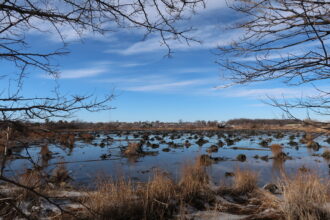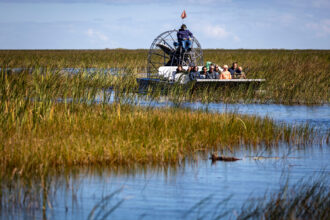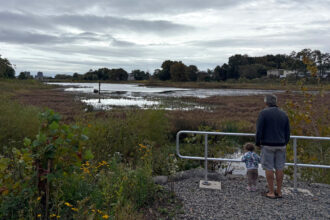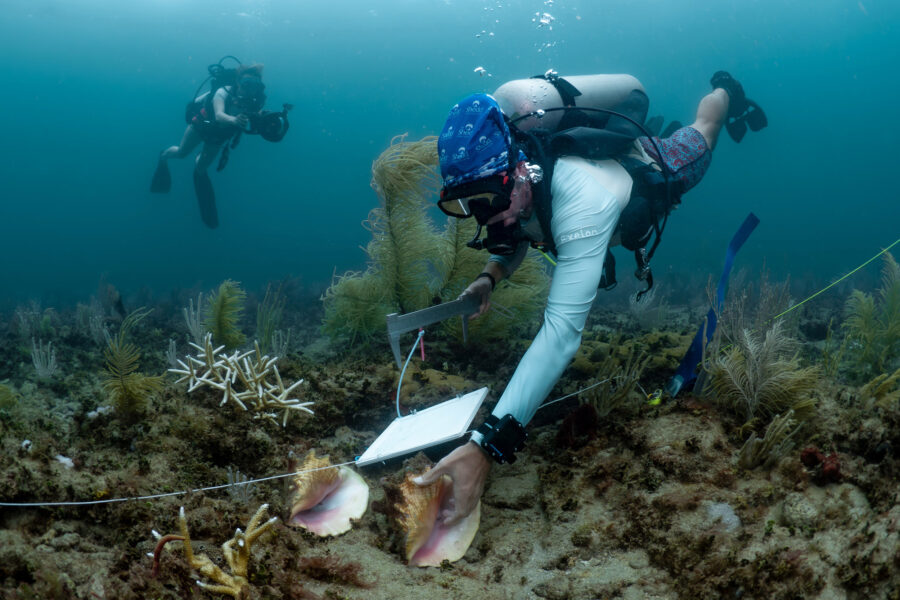InsideClimate News reporters Elizabeth McGowan, Lisa Song and David Hasemyer are the winners of this year’s Pulitzer Prize for national reporting.
The trio took top honors in the category for their work on “The Dilbit Disaster: Inside the Biggest Oil Spill You’ve Never Heard Of,” a project that began with a seven-month investigation into the million-gallon spill of Canadian tar sands oil into the Kalamazoo River in 2010. It broadened into an examination of national pipeline safety issues, and how unprepared the nation is for the impending flood of imports of a more corrosive and more dangerous form of oil.
The Pulitzer committee commended the reporters for their “rigorous reports on flawed regulation of the nation’s oil pipelines, focusing on potential ecological dangers posed by diluted bitumen (or “dilbit”), a controversial form of oil.”
The recent ExxonMobil pipeline spill in Arkansas, which also involved heavy Canadian crude oil, underscores the continuing relevance of this ongoing body of work, as the White House struggles with reaching a decision on the controversial Keystone XL pipeline.
“It is enormously gratifying to have our work recognized with such a high honor, and I’m very proud of our entire team,” said David Sassoon, founder and publisher of InsideClimate News. “It’s a watershed moment for our non-profit news organization, a good day for environmental journalism, and a hopeful signal for the future of our profession.”
InsideClimate News’ executive editor Susan White, who conceived and edited the project, said it succeeded because of the combined talents of the three reporters.
“Elizabeth, Lisa and Dave believed deeply in these stories and were determined to do everything they could to make them clear and accessible to our readers,” White said. “Elizabeth’s ability to persuade people to talk, Lisa’s science background and Dave’s doggedness made it all work.”
“The need to tell this story trumped all else,” said Stacy Feldman, co-founder and managing editor. “So we figured out how to successfully balance the daily demands of an online news organization with a deep dive and commitment of resources to this long-term project.”

The Pulitzer-winning entry included a three-part narrative by McGowan and Song, who described the unfolding of the Michigan oil spill from the point of view of those directly involved—residents; state, local and EPA officials at the scene; scientists; and spokesmen with Enbridge Inc., the company responsible for the spill. As the three-year anniversary of the spill approaches, oil is still being removed from the Kalamazoo River.

Song followed up with articles that revealed critical gaps in federal pipeline safety regulations, while Hasemyer focused on how Enbridge’s rebuilding of the ruptured pipeline is affecting the lives of people along the route.

InsideClimate News is five-year-old non-profit, non-partisan news organization that covers clean energy, carbon energy, nuclear energy and environmental science. Its mission is to produce objective stories that give the public and decision-makers the information they need to navigate the heat and emotion of the climate and energy debates. It has grown from a founding staff of two to a mature virtual newsroom of seven full-time professional journalists and a growing network of contributors. It is raising funds to come to full scale in the next two to three years.
The core funders of InsideClimate News are the Rockefeller Brothers Fund, the Marisla Foundation and the Grantham Foundation for the Protection of the Environment.
About This Story
Perhaps you noticed: This story, like all the news we publish, is free to read. That’s because Inside Climate News is a 501c3 nonprofit organization. We do not charge a subscription fee, lock our news behind a paywall, or clutter our website with ads. We make our news on climate and the environment freely available to you and anyone who wants it.
That’s not all. We also share our news for free with scores of other media organizations around the country. Many of them can’t afford to do environmental journalism of their own. We’ve built bureaus from coast to coast to report local stories, collaborate with local newsrooms and co-publish articles so that this vital work is shared as widely as possible.
Two of us launched ICN in 2007. Six years later we earned a Pulitzer Prize for National Reporting, and now we run the oldest and largest dedicated climate newsroom in the nation. We tell the story in all its complexity. We hold polluters accountable. We expose environmental injustice. We debunk misinformation. We scrutinize solutions and inspire action.
Donations from readers like you fund every aspect of what we do. If you don’t already, will you support our ongoing work, our reporting on the biggest crisis facing our planet, and help us reach even more readers in more places?
Please take a moment to make a tax-deductible donation. Every one of them makes a difference.
Thank you,













